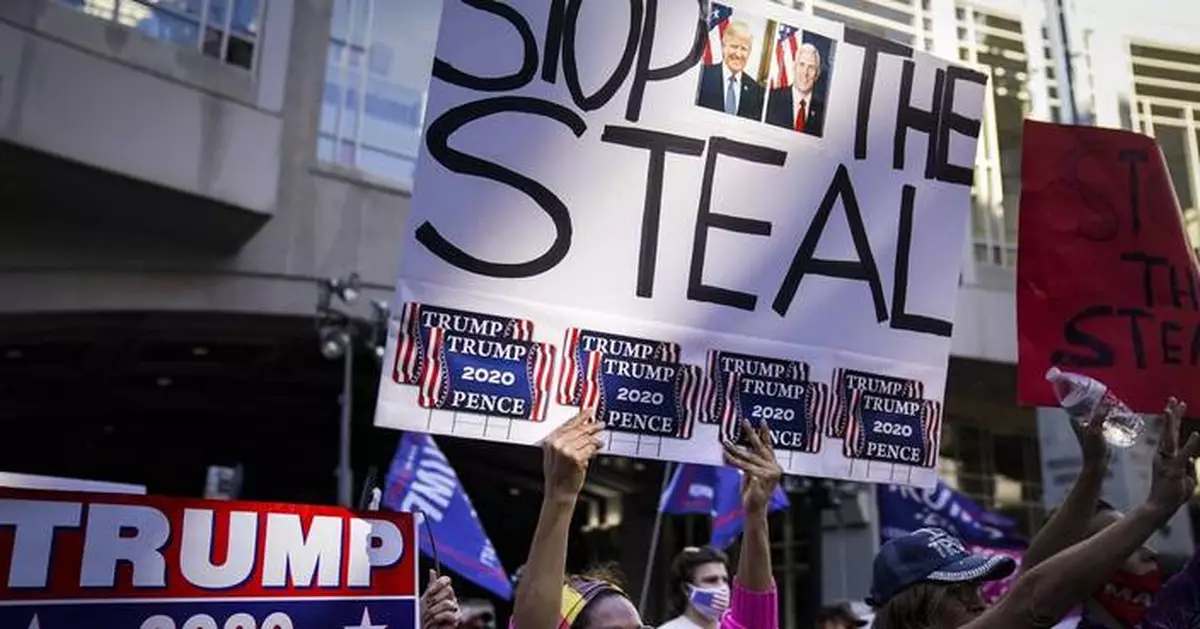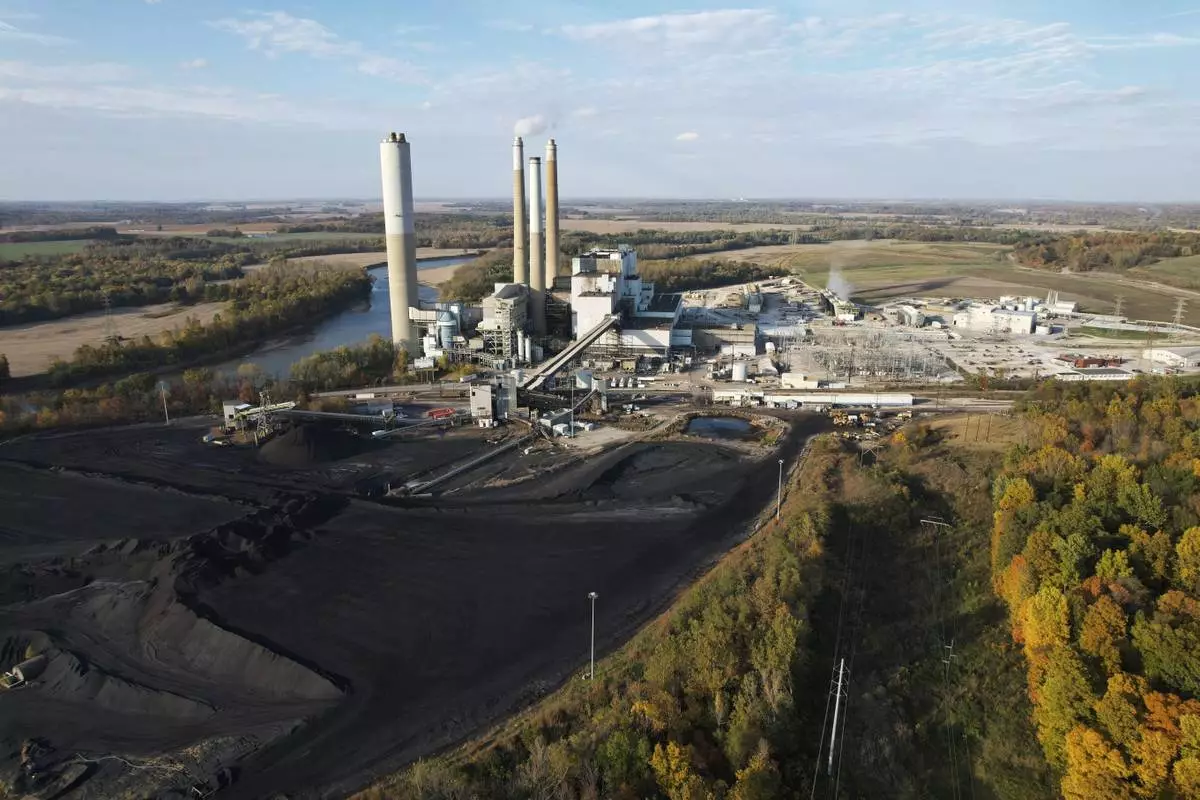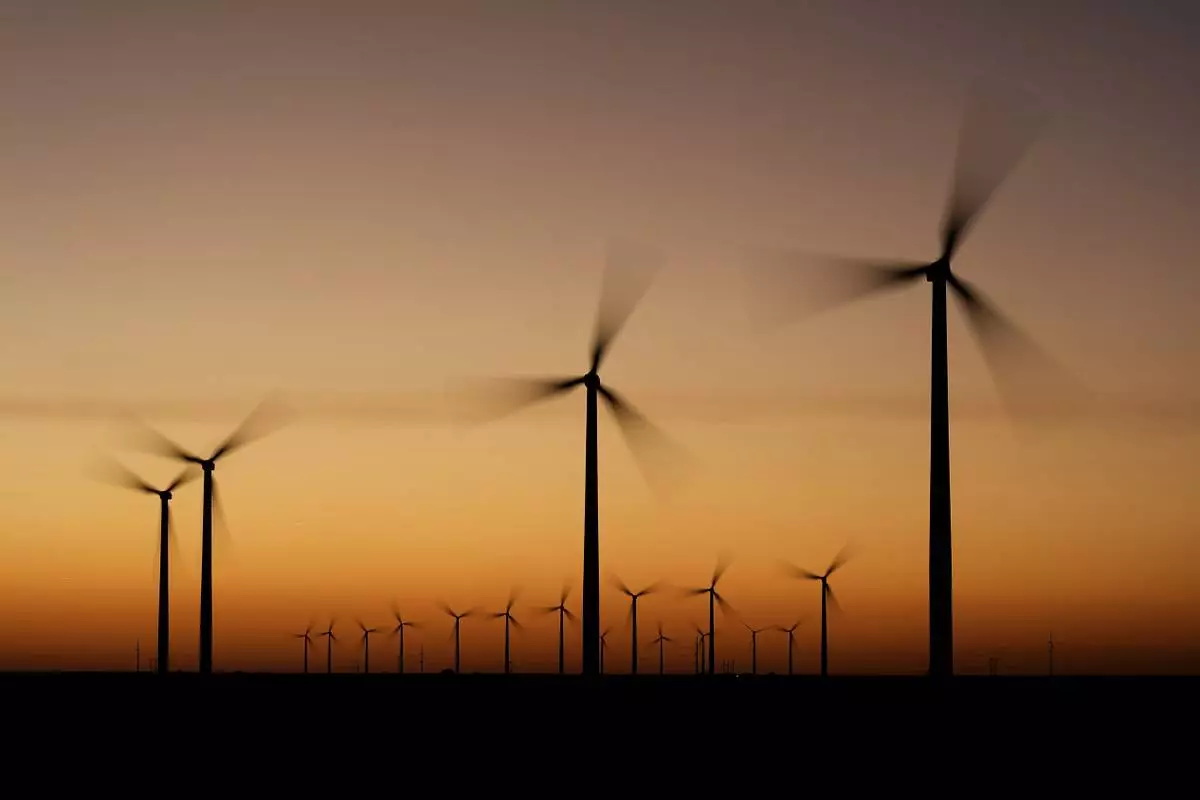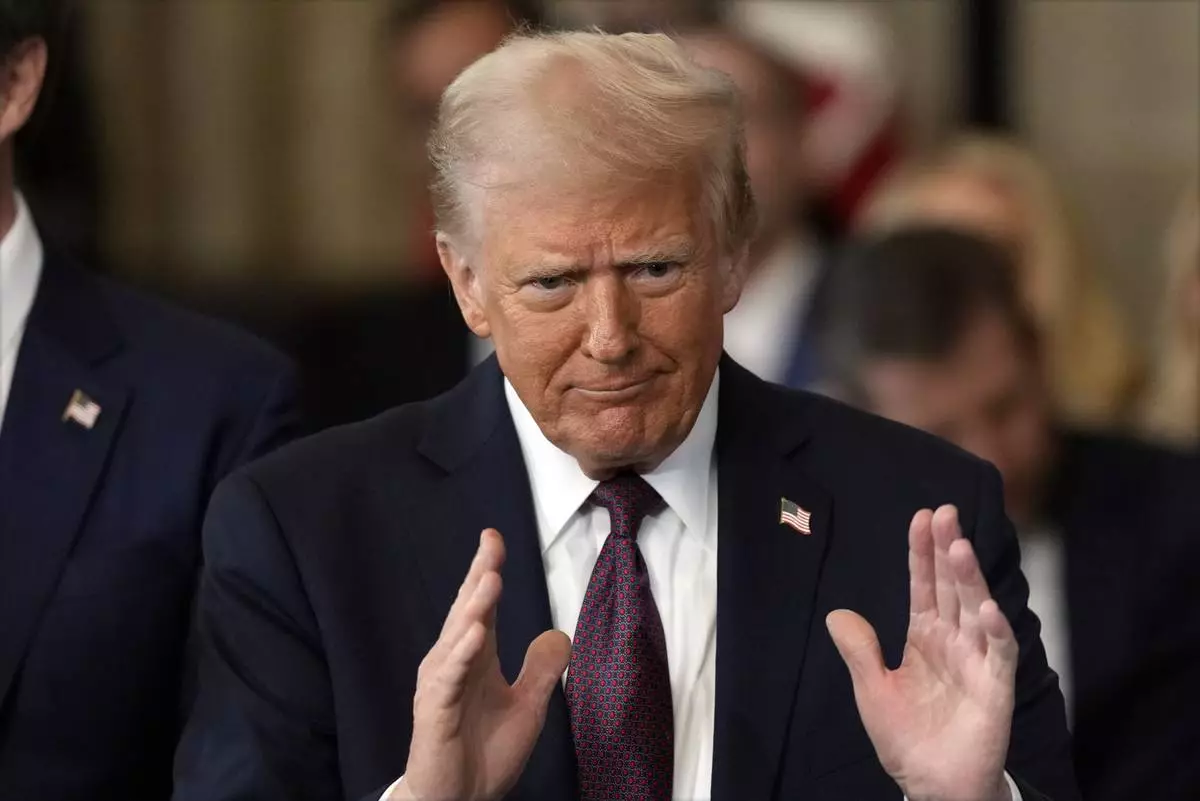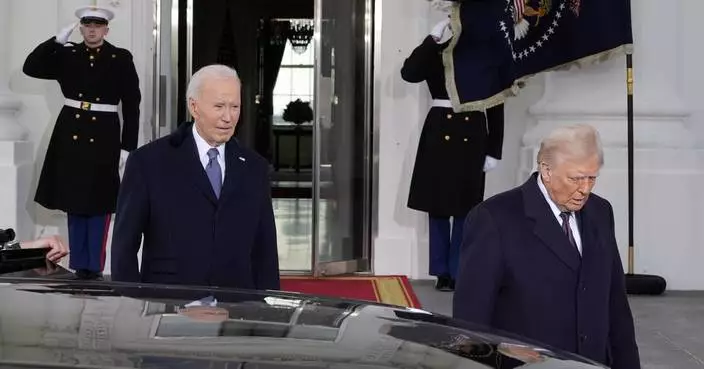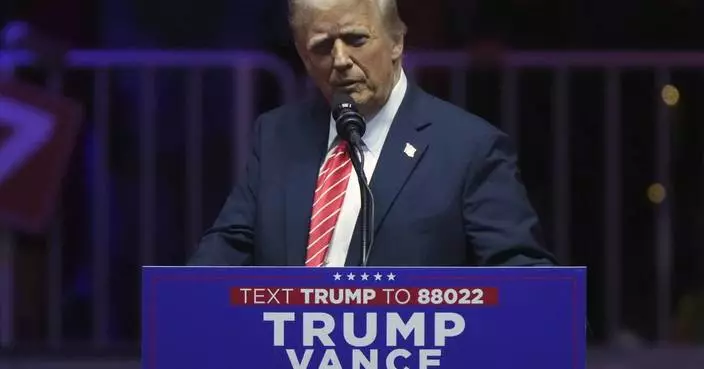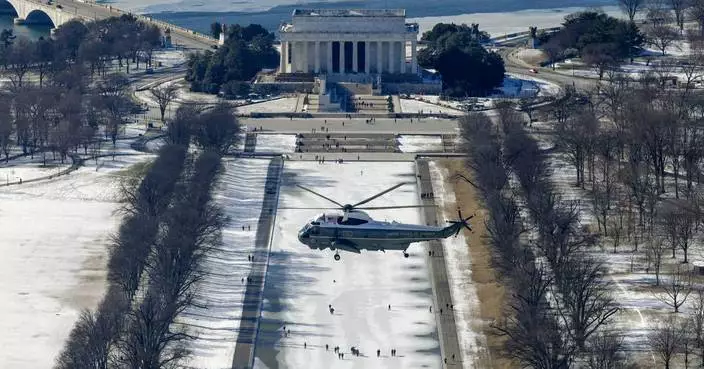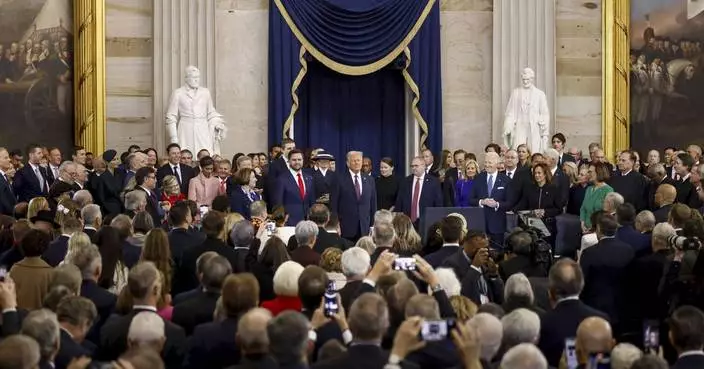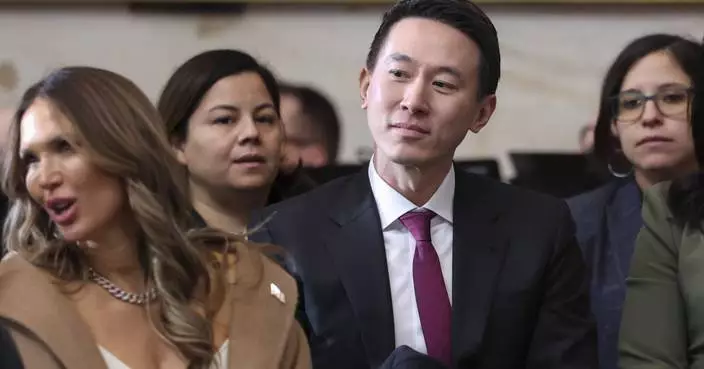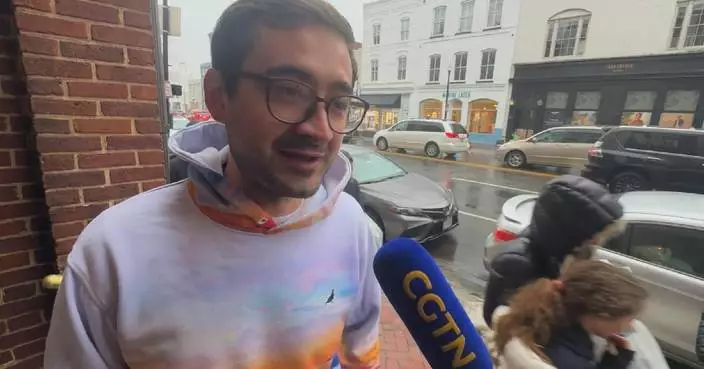CHICAGO (AP) — For Christopher Pugh, the 2020 election was a turning point.
He already distrusted the government. But as he watched Fox News coverage in the immediate aftermath of the election and read posts on Twitter, the social media platform now known as X, that distrust grew. He now believes the falsehood that the 2020 election was stolen and trusts few people other than former President Donald Trump to deliver him news about election results.
“I trust Donald Trump, not the government,” said the 38-year-old Republican from Gulfport, Mississippi. “That’s it.”
While most Americans trust government-certified election results at least a “moderate” amount, Republicans are more likely to trust Trump and his campaign, according to a new survey from the Associated Press-NORC Center for Public Affairs Research and USAFacts. Americans also are heading into the November election with concerns about misinformation. Many have low trust that the information they receive from presidential candidates — particularly Trump, but also Vice President Kamala Harris — is based on factual information.
Trump continues to lie about the outcome of the 2020 election, saying it was rigged against him even after dozens of his court challenges failed, reviews, recounts and audits in battleground states all affirmed President Joe Biden's win, and Trump's own attorney general said there was no evidence of widespread fraud. Despite no evidence of any widespread fraud, a 2023 poll found that most Republicans believe Biden was not legitimately elected president.
As Trump runs as the Republican candidate for the third time, he also is signaling that he can only lose through widespread fraud. Over the weekend he threatened to prosecute those “involved in unscrupulous behavior” this election should he win in November.
“The only way they can beat us is to cheat,” Trump said at a Las Vegas rally in June.
The recent findings from the AP-NORC survey show that a significant chunk of Trump's supporters might be more inclined to believe what he says about the upcoming election results than they are to trust government certifications of election results.
About two-thirds of Republicans trust Trump's campaign at least a moderate amount to provide accurate information about the results of the 2024 election, while only about half say the same about the official certifications of results, the survey found. By contrast, about 9 in 10 Democrats trust the government certification at least a moderate amount, and an overwhelming majority, 82%, also have at least a moderate amount of trust in Harris and her campaign.
Most Americans — around 7 in 10 — trust the government certifications of election results at least a moderate amount, according to the survey. Majorities also trust national and local TV news networks, as well as local or national newspapers, to provide accurate information about the outcome of this year's presidential election.
Danielle Almeida, a 45-year-old Democrat from Briarcliff Manor, New York, said she trusts government-certified election results and finds it alarming that some Americans don’t.
“In order to have a democracy, we have to trust the system and the results of our elections,” she said, adding that she thinks Trump “does not care about fact-checking because he believes his supporters don’t care, either.”
Americans are less likely to trust the campaigns overall — compared to sources such as the government and the media — but they have a higher level of trust in Harris and her campaign than in Trump and his campaign to provide accurate information about the outcome of the election. About half have at least a “moderate” amount of trust in Harris and her campaign. By contrast, about 4 in 10 have at least a moderate amount of trust in Trump and his campaign.
Some Republicans' distrust of election results started far before the 2020 election.
Richard Baum, 60, a conservative independent from Odessa, Texas, said his suspicions began in the 2000 U.S. presidential race between George W. Bush and Al Gore. After Bush won by a slim margin, “hanging chads” became an unlikely symbol of a disputed presidential election as small anomalies common in elections ballooned into major national controversies.
“There was some stuff there that didn’t seem right that made a lot of doubts in my mind about if you can trust the government,” Baum said.
Baum said he would trust election results only if voting took place on only a single day, early voting and mail-in ballots were banned and photo IDs were required at all polling places.
Many Americans doubt the veracity of both presidential candidates’ campaign messages, but skepticism about Trump’s campaign is higher, the USAFacts/AP-NORC survey found.
About 6 in 10 Americans believe that Trump’s campaign messages are “rarely” or “never” based on factual information, compared to 45% who say that about Harris’ campaign messages.
Many Americans also say it's hard to discern fact from fiction when it comes to the candidates. Slightly less than half of Americans say it’s “very easy” or “somewhat easy” to find factual information about the candidates and their positions, and only about one-third say it’s easy to know if what candidates are saying is true or not.
About 6 in 10 Americans say it’s easy for them to understand the difference between fact and opinion when it comes to information about the upcoming presidential election, but only about 4 in 10 say it’s easy to know whether information is true or not.
Americans are, however, more confident about factual information related to election logistics: About 7 in 10 Americans say it’s easy to find information about how to register to vote, and about 6 in 10 say it’s easy to find information about how to cast their ballot.
Michele Martin, a 56-year-old Pennsylvania Democrat, said she is “very concerned” about misinformation from politicians but finds it much easier to access basic voter information.
“It’s online. It’s mailed to you. It’s not hard to find,” she said.
About 8 in 10 Americans say that when it comes to getting information about the government, the spread of misinformation is a “major problem.” That is essentially unchanged from when the question was asked in 2020.
Lisa Kuda, a 57-year-old Republican from Palm Harbor, Florida, said she gets most of her news from social media and friends. She said she feels alienated from most news sources other than Fox News.
“Misinformation is everywhere,” she said. “It’s really difficult to find information about candidates.”
When Americans see news about the election and want to find out whether it’s true, 40% say they turn to an internet search first. Much smaller shares — around 1 in 10 for each — say they first check cable news, national TV news or social media.
Baum, from Texas, said he finds it difficult to easily access information about candidates because he believes social media platforms “are censoring conservative ideologies.” He also doesn’t trust Google and instead turns to conservative networks and podcasts such One America News and conservative podcasters to fact-check claims he’s unsure about.
Almeida’s process looks much different. She starts with a Google search and wades through multiple articles from news outlets such as The New York Times and NBC News, making note of any differences. If multiple articles have the same information, she said, she’s more likely to trust it.
“Misinformation is a huge problem,” she said. “You have to take time to do your research.”
Associated Press writer Ali Swenson in New York contributed to this report. Sanders reported from Washington.
The poll of 1,019 adults was conducted July 29-August 8, 2024, using a sample drawn from NORC’s probability-based AmeriSpeak Panel, which is designed to be representative of the U.S. population. The margin of sampling error for all respondents is plus or minus 4.0 percentage points.
The Associated Press receives support from several private foundations to enhance its explanatory coverage of elections and democracy. See more about AP’s democracy initiative here. The AP is solely responsible for all content.
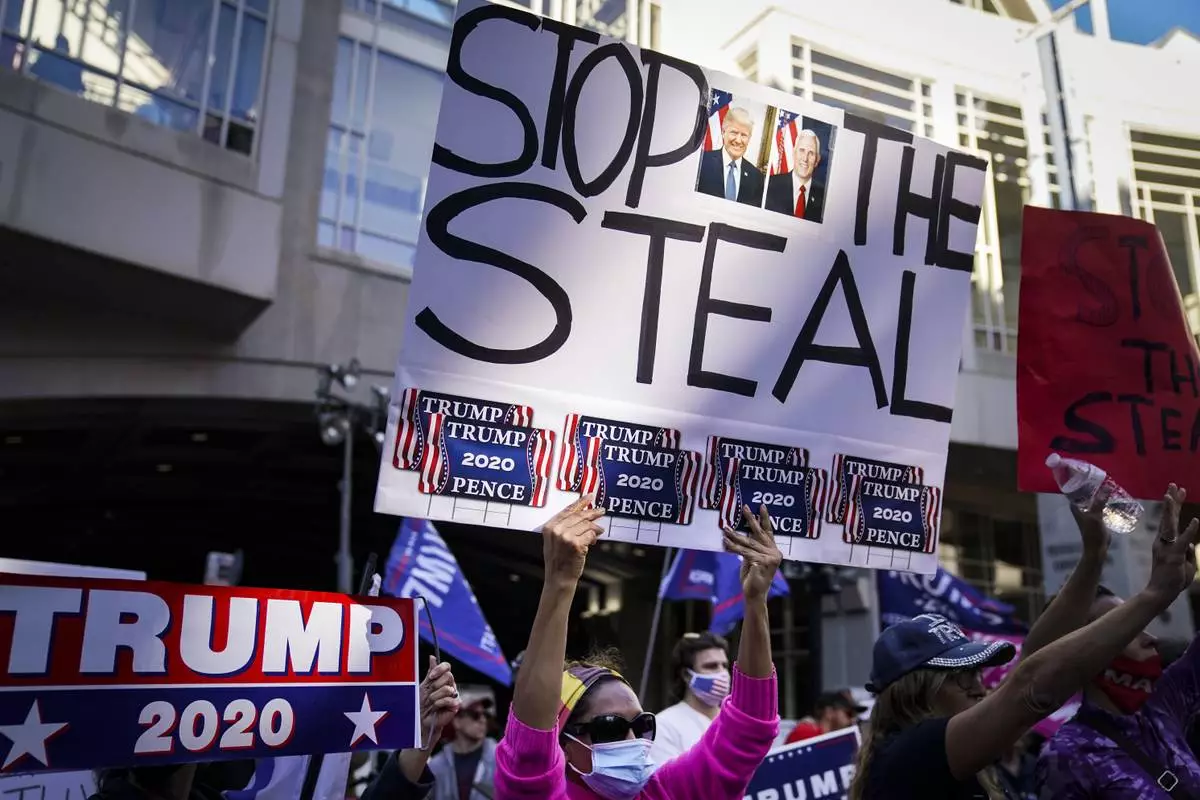
FILE - President Donald Trump supporters gather with some signs claiming a stolen election outside the Philadelphia Convention Center as they await general election tabulation results, Nov. 6, 2020, in Philadelphia. (AP Photo/John Minchillo, File)


